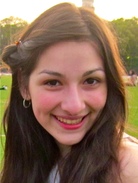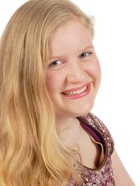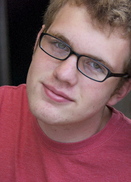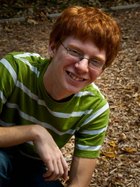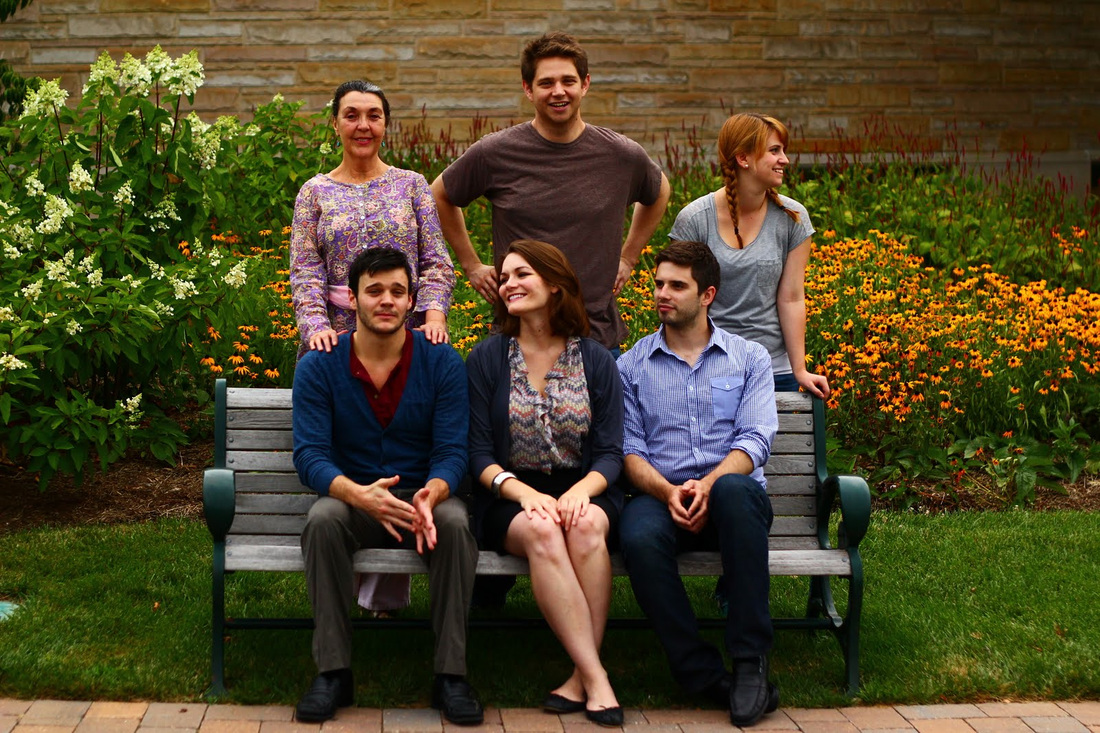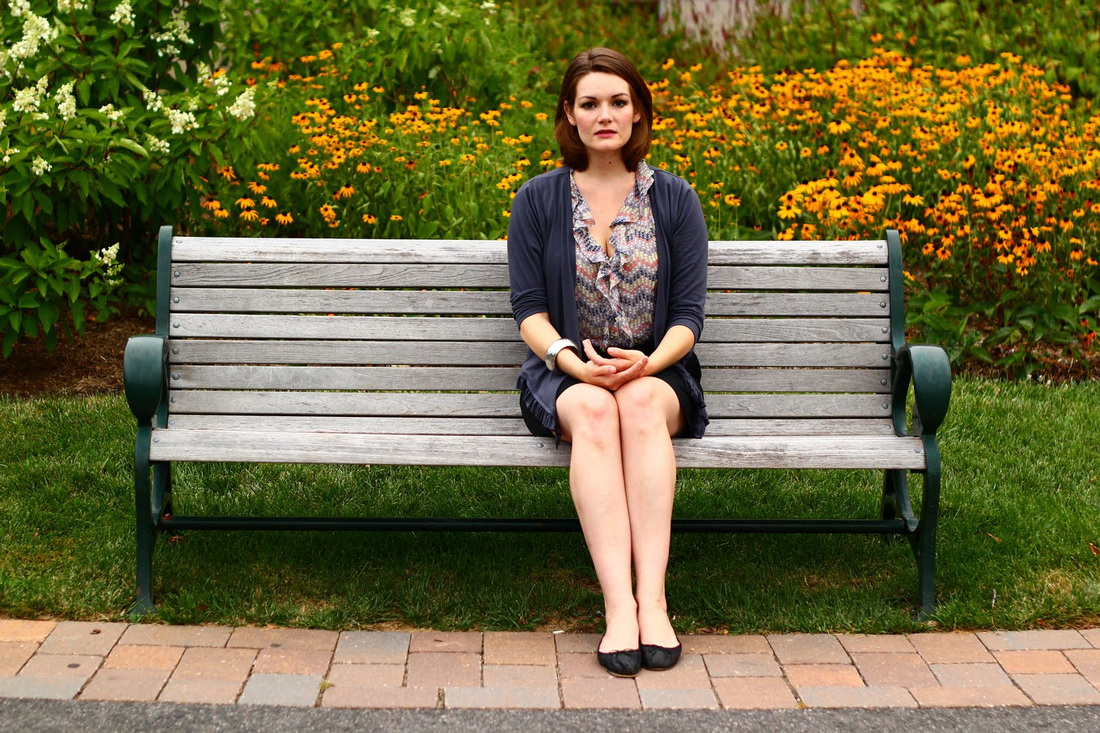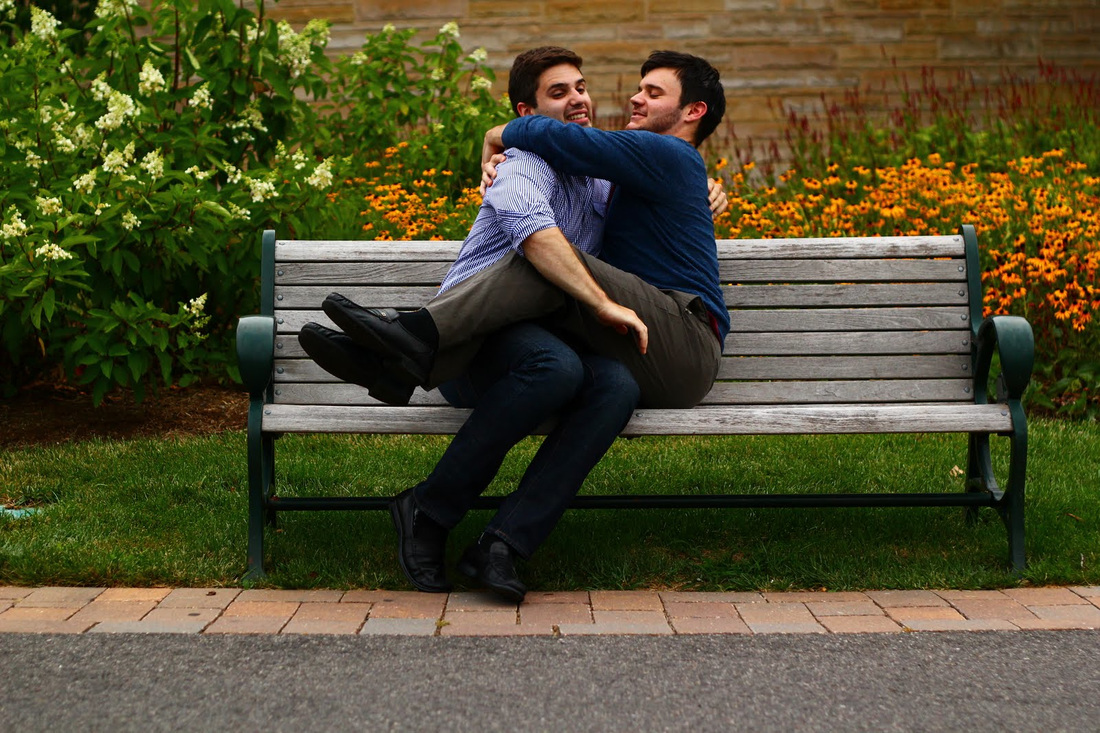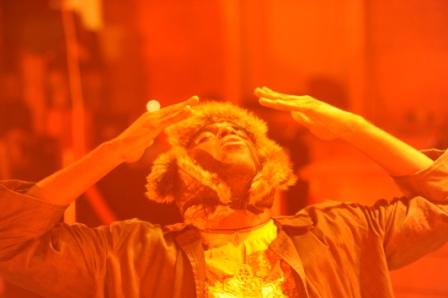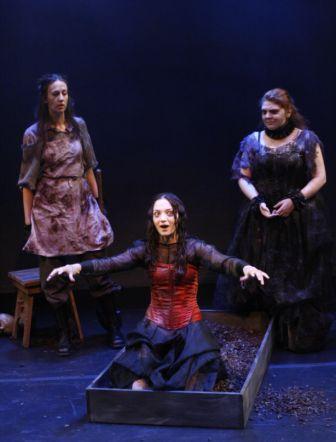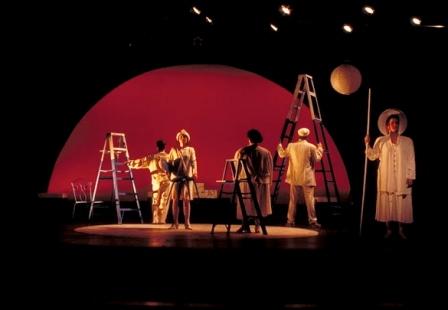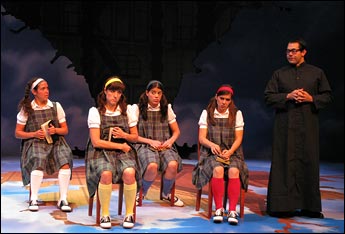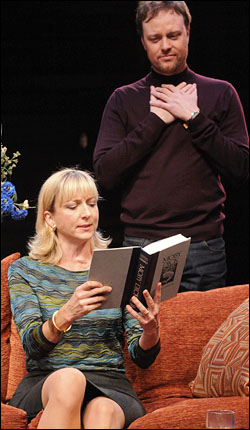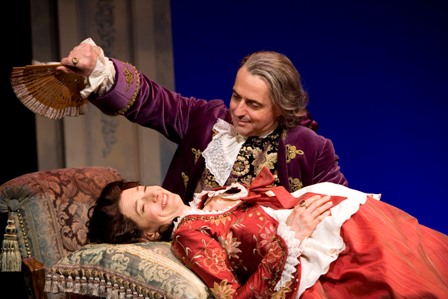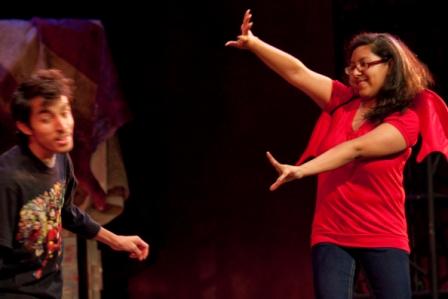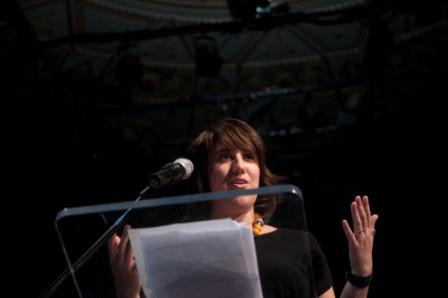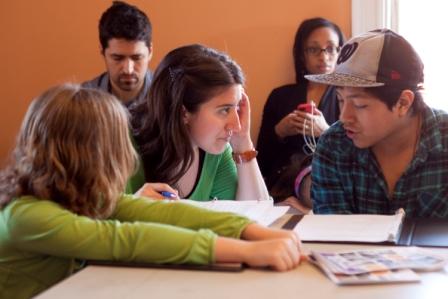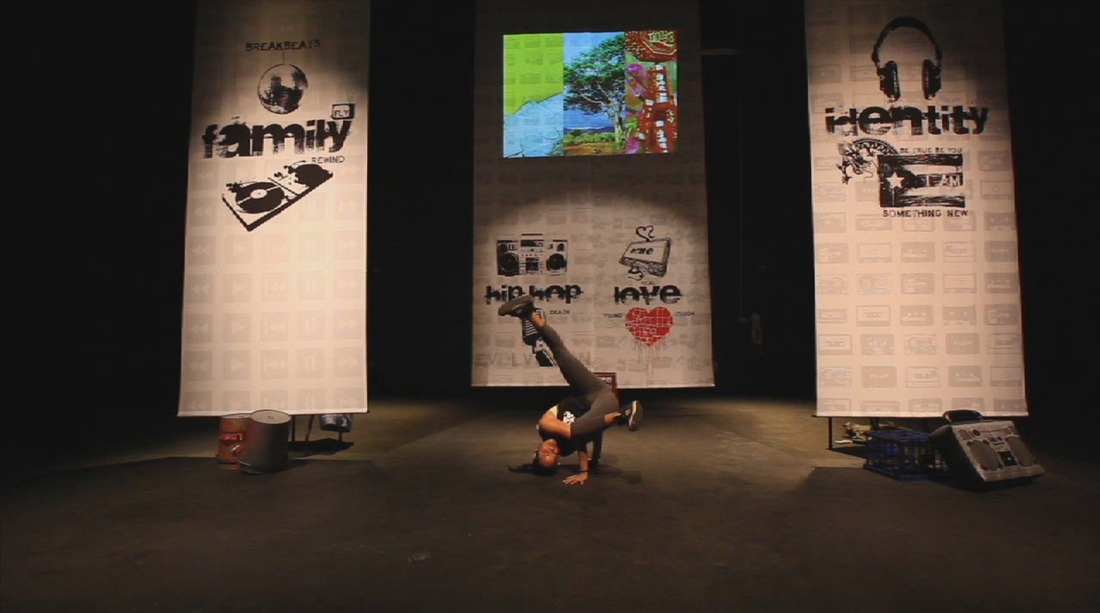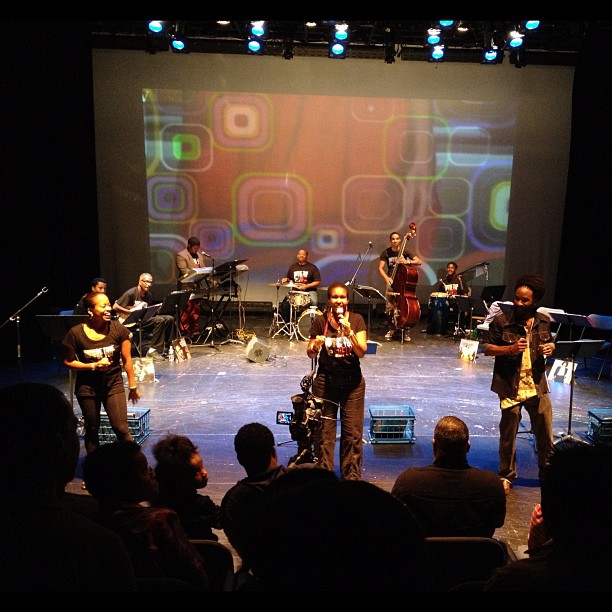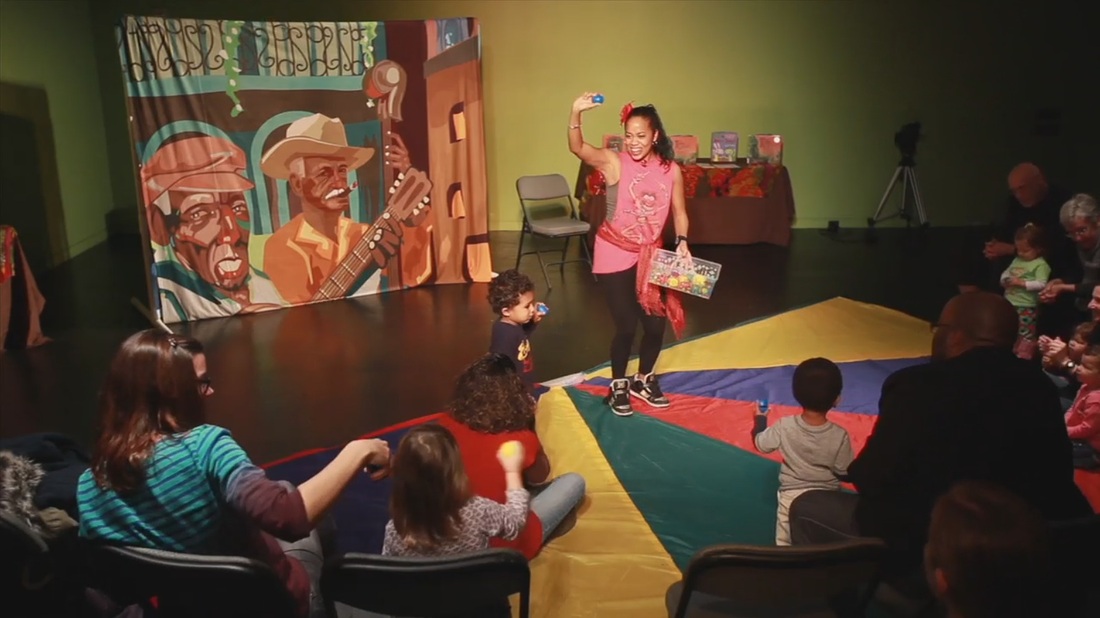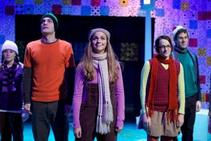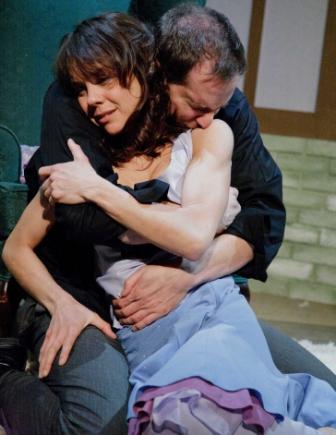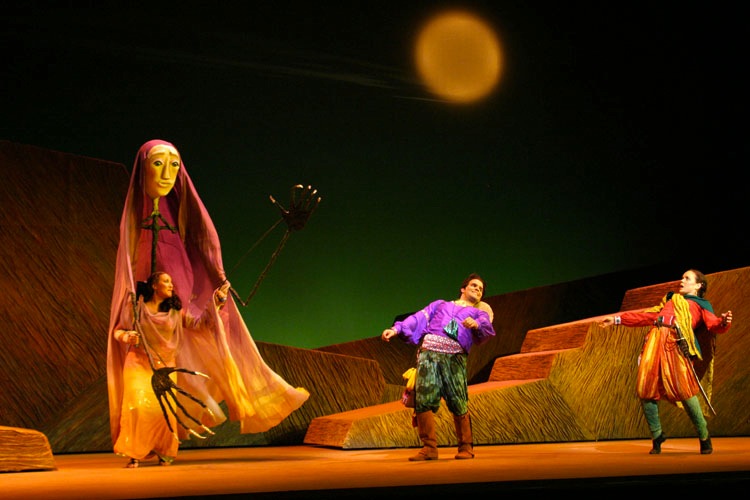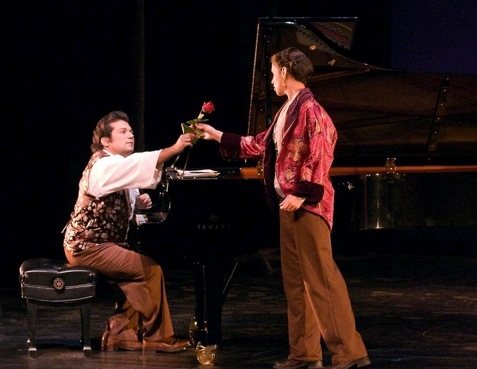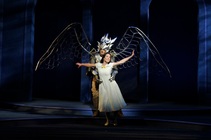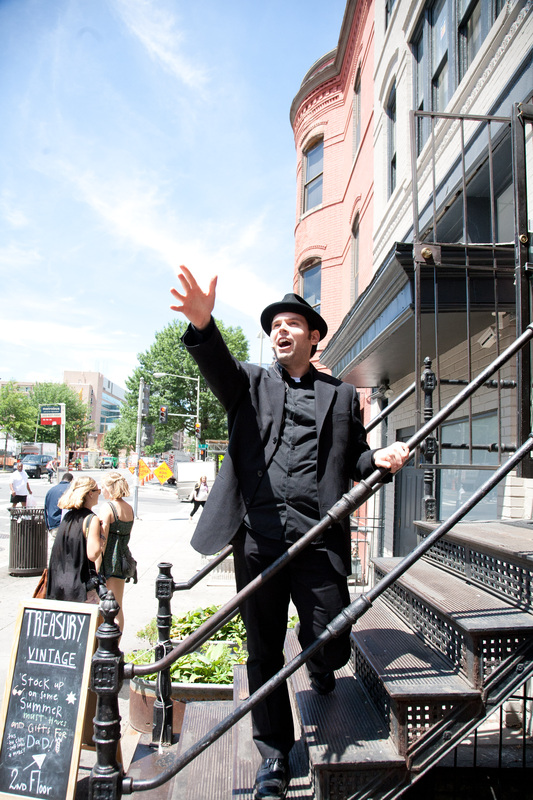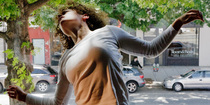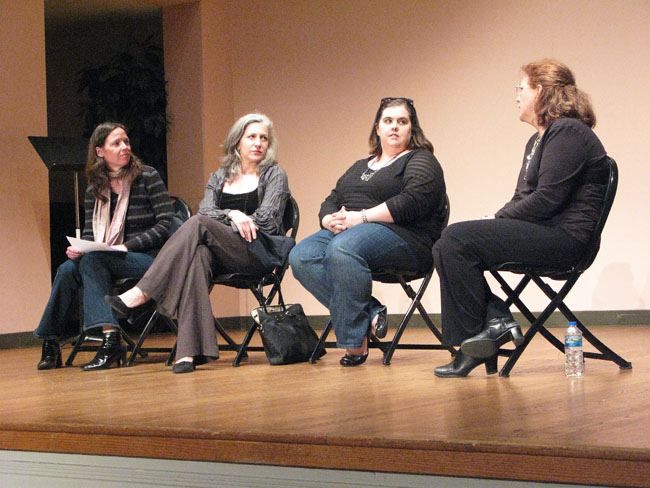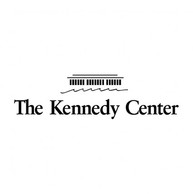 As promised, I'd like to introduce you to the Mentors of VSA's 2012 Playwrights Discovery Program! I was really quite moved and inspired by my experience working with Bradley Hildebrandt on his play, Life is Jazz. So, I wanted to reach out to the other mentors to see how the experience impacted them. They were happy to oblige and shared their thoughts with us here! 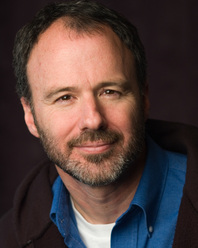 NORMAN ALLEN Norman Allen’s work has been commissioned and produced by the Kennedy Center (The Light of Excalibur), the Shakespeare Theatre Company (On the Eve of Friday Morning), Olney Theatre Center (Coffee with Richelieu) and the Karlin Music Theatre in Prague, where his contemporary take on Carmen (score by Wildhorn & Murphy) recently ended a four-year run. While playwright-in-residence at Signature Theatre, Allen premiered Melville Slept Here, Nijinsky's Last Dance (Helen Hayes Award, Outstanding Play), In the Garden (Charles MacArthur Award), and Fallen from Proust, with subsequent productions throughout the United States, South Africa and Europe. He provided the concert adaptation for Encore's Sweet Adeline at New York City Center, and the libretto for the national tour of Cirque Ingenieux, later featured on PBS. Other PBS credits include documentaries on Van Gogh, Sargent, Cassatt, and Cezanne. Allen’s plays have been translated into Czech, Hungarian, and Slovenian, and will soon be heard in Japanese and Korean. His features and commentary have appeared in The Washington Post, Smithsonian and Washingtonian magazines, WAMU-FM (NPR), and other media outlets. On Mentoring I was enormously impressed with Catherine's work over the last several weeks. It's very difficult to write something you believe in deeply, than have some random guy show up in your email box with a bunch of questions and suggestions. But she was incredibly open, and very responsive - and that's a key skill for any writer. We all need the ability to listen to feedback - to really hear it - and then to discern what is actually relevant to our particular vision. Catherine had the good sense to disagree with me a few times. She also did some incredibly rich work, deepening the emotional through-line of her play, building suspense and clarifying characters. I was enormously impressed. I've experienced first-hand the amazing benefits that come from having a great mentor. I wouldn't have survived my first years as a teacher if my mentor hadn't been brilliant - and patient. In a pay-it-forward move, I've just started working with the Center for Inspired Teaching - as a mentor myself. To bring some of those same skills to a young playwright, through the Kennedy Center's program, has been especially satisfying. And the best is yet to come! After weeks of emailing back and forth, I can't wait to actually be in rehearsal with Catherine, as she sees her work come to life - and navigates that heady experience of actors, and a director, taking over the characters that she's lived with for so long. I know what a complicated moment that can be. It's going to be a very interesting - and very exciting - weekend. 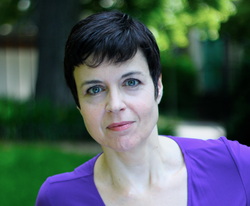 RENEE CALARCO Renee Calarco lives and works in Washington, DC. Her play SHORT ORDER STORIES received the 2007 Charles MacArthur Award for Outstanding New Play. Other plays include THE RELIGION THING (2012 Helen Hayes Recommended), KEEPERS OF THE WESTERN DOOR, THE MATING OF ANGELA WEISS, BLEED, and IF YOU GIVE A CAT A CUPCAKE (commissioned by Adventure Theatre in 2011). Her 10-minute play WARRIORS was published by One Act Play Depot in 2010. Other short plays include SEMPER FIDELIS, POUNDS AWEIGH, and FIRST STOP: NIAGARA FALLS. Renee is an artistic associate with First Draft/Charter Theater, the program coordinator for Naked Ladies Lunch, and a proud member of both DC Area Playwrights and The Dramatists Guild of America. She teaches playwriting at George Washington University and improvisational comedy at The Theatre Lab, and is a licensed professional tour guide. www.reneecalarco.com On Mentoring ... You know, we playwrights talk a lot about what makes something theatrical or why a certain story can only be told on the stage. I learned so much about theatricality from "my" student playwright; he's amazingly inventive and has a fantastic sense of theatricality. Plus, he's a wickedly funny writer. And! To my complete and utter delight, he's done improv, which is how I started out in theater. So we had some great conversations about that. Thank heavens for the Kennedy Center and this program...mentorship is just so important. We gotta get those writers while they're young! 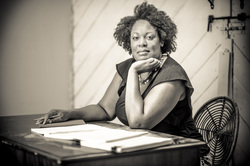 JACQUELINE LAWTON Jacqueline Lawton is the author of Anna K; Bend and Sway, Don’t Break; Blood-bound and Tongue-tied; Deep Belly Beautiful; The Devil’s Sweet Water; The Hampton Years; Ira Aldridge: the African Roscius; Lions of Industry, Mothers of Invention; Love Brothers Serenade, and Mad Breed. Lawton’s work has been commissioned, developed and presented at the following venues: Active Cultures, Classical Theater of Harlem, Discovery Theater, Folger Shakespeare Library, theHegira, Howard University, Kennedy Center’s Page to Stage Festival, National Portrait Gallery, National Museum of American History, Rorschach Theater Company, Round House Theatre, Savannah Black Heritage Festival (Armstrong Atlantic State University), Shakespeare Theatre Company, Source Theatre Festival, Theater J, and Woolly Mammoth Theater Company. She is published in Experiments in a Jazz Aesthetic: Art, Activism, Academia, and the Austin Project (University of Texas Press). Lawton is a 2012 TCG Nathan Cummings Young Leaders of Color award recipient. She has been nominated for the Wendy Wasserstein Prize and a PONY Fellowship from the Lark New Play Development Center. She was named one of 30 of the nation's leading black playwrights by Arena Stage’s American Voices New Play Institute. On Mentoring I loved working Bradley on his remarkably beautiful play, Life is Jazz, which is abut about vision (sight), social awareness (technology obsessed world), love, and art. As soon as I read it, I wrote a note to Gregg Henry: "OHMYGOSH, I am in love with this play! Thank you for this amazing opportunity!" It just so happens that I'm currently working on a play, The Hampton Years, which is about vision (self-expression), social awareness (race politics), love, and art! In his play, the artist is blind. I have always been fascinated by sight. When I was eight years old, I was told by my optometrist that I would be blind by the time I was 30. Um, first of all, don't tell that to an 8 year old! This terrified me. I loved colors! I cried, but eventually comforted myself by saying that my memories of this vibrant world would be enough to sustain me. And while my vision decreased, it actually reversed and improved in my 30s! So there you go! Throughout the six weeks, Bradley and I were working on rewrites at the same time. In one of our exchanges, he shared that he felt stuck and was writing in circles. This happened to be at the exact same time that I felt stuck and was writing in circles! He asked me about my process to which I responded:
Somehow in the process of sharing this with him, I unlocked the script. I began to trust and rely on my own process again. What's more, Bradley and I became champions for each other! Each time I checked in with him, he never failed to check in with me! There was a mutual respect, investment, and admiration for our respective journeys and for the life of our plays. This is what I feel is so unique, wonderful and important about mentorship. 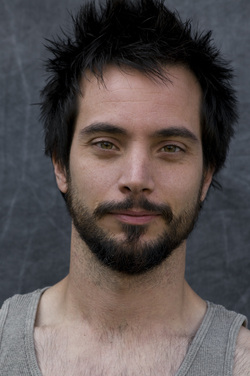 GREGG MOZGALA Gregg Mozgala is a critically acclaimed actor and playwright. Gregg has been in various New York productions Off- and Off-Off Broadway with Rattlestick Playwrights Theater, The LAByrinthTheatre Company, La Mama ETC, Performance Space 122, Theater Breaking Through Barriers, The Brick Theater, The National Theatre Workshop of the Handicapped, Imua! Theatre Company, Visible Theatre and the Ensemble Studio Theatre. His plays have been presented Off-Broadway with Theatre Breaking Through Barriers and at the Ensemble Studio Theatre as well as the Kennedy Center for the Performing Arts and in various theatres throughout New York City. Gregg is a former member of the Obie-award winning playwriting group, Youngblood, at The Ensemble Studio Theatre. His ten-minute play, "French Twist," was presented by SHOUT LLC and Semantic Compaction, Inc. as part of the Pittsburgh Employment Conference in August 2011 and had the distinction of being the first play ever to feature assistive augmentative communicators (AAC users), speaking in real time. He has been profiled in the New York Times on several occasions, most notably for his groundbreaking work with choreographer Tamar Rogoff, which was also featured on CBS Sunday Morning and Good Morning America. Their experience is the subject of the soon to be released documentary, The Faun Experiment, currently in post-production. On Mentoring... Mentorship is an exchange. I "teach" the mentor but the mentor has also done the same for me. Samantha Brown has so much fire and passion for her art and the theatre that it reminds me why I got into this in the first place. She has carried herself with such a professional demeanor that I often forgot that she's only sixteen years old. First and foremost she has succeeded in teaching me what I already know; theatre is an amazing venue for expression and enjoyment that creates community, breaks down barriers and serves as a place of inclusion and a forum for ideas. Not bad. Not bad at all.
0 Comments
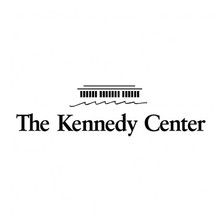 Six weeks ago, the amazing Gregg Henry reached to professional playwrights Norman Allen, Renee Calarco, Gregg Mozgala and me to be mentors to young playwrights who had been awarded the 2012 Playwrights Discovery Award as part of The Kennedy Center's Department of VSA and Accessibility. The VSA Playwright Discovery Program is extraordinary, worthwhile and inspiring! It's an annual competition that invites middle and high school students to take a closer look at the world around them, examine how disability affects their lives and the lives of others, and express their views through the art of playwriting. Young playwrights with and without disabilities can write from their own experience or about an experience in the life of another person or a fictional character. The program began in 1984, and has continued annually since. This year’s distinquished recipients were chosen from more than 350 applications nationwide and an excerpt of their work will be presented at the Kennedy Center as part the 11th Annual Page-to-Stage Festival. In my next post, I'm going to introduce you to the mentors and share their experience and the role of mentorship! For now, here's more information about the reading and the wonderful young playwrights!!! The John F. Kennedy Center for the Performing Arts presents the 28th Annual Playwright Discovery Performance Staged readings of four award-winning student scripts Sunday, September 2, 2012 at 6:00 p.m. MILLENNIUM STAGE NORTH Excerpts from the plays--Mr. Pan & Neverland by Samantha Brown, from Brooklyn, NY; To the Beat of a Funeral March by Catherine Caffera, from Fairport, NY; Life is Jazz by Bradley Hildebrandt, from Elkhorn, NE; and Dominoes by Christian Mincks, from Colonial Heights, VA--are presented in concert reading format featuring Jessica Frances Dukes, Phillip James Brannon, Carlos Saldana, Rana Kay, Michael Willis, Michael Sazonov, John Lescault, Dana Levanovsky, and Kimberly Schraf. About the Plays and Playwrights About VSA
VSA, the international organization on arts and disability, was founded more than 35 years ago by Ambassador Jean Kennedy Smith to provide arts and education opportunities for people with disabilities and increase access to the arts for all. VSA is an affiliate of the John F. Kennedy Center for the Performing Arts. For more information, www.vsarts.org. About Education at the Kennedy Center As the national center for the performing arts, the John F. Kennedy Center for the Performing Arts is committed to increasing opportunities for all people to participate in and understand the arts. To fulfill that mission, the Kennedy Center strives to commission, create, design, produce, and/or present performances and programs of the highest standard of excellence and of a diversity that reflects the world in which we live—and to make those performances and programs accessible and inclusive. JL: How long have you lived and worked as a playwright in DC? What brought you here? Why have you stayed?
DM: I've lived and worked as a playwright in DC for just over a year. I moved here to become the Company Manager/Production Management Apprentice at The Studio Theatre. I had just graduated from Emerson College and was in a post-grad school "What now?" I was hired by Studio just after July 4th and moved to DC two weeks later. I had my DC playwriting debut in the 10th Annual Page-to-Stage Festival as part of the Playwrights' Slam. And after my apprenticeship ended, I decided to stay despite the fact that I was (at the time) what one would call "underemployed." I owe the DC-Area Playwrights a lot of the reason for staying. The other reason was so that I could continue to build up my own theatre company -- Field Trip Theatre. JL: Have you ever been a member of a DC area playwrights writing group? If so, did you find it useful? Would you recommend that other playwrights join them? DM: I'm one of the co-moderators of the group now, so of course I would recommend that everyone join. Gwydion Suilebhan is reason enough to lurk on the boards. He's always asking the tough questions about the state of DC playwrights. JL: In DC, we have the Capital Fringe Festival, the Intersections Festival, the Source Festival, the Kennedy Center's Page-to-Stage Festival, the Black Theater Festival, and the Hip Hop Theatre Festival. We also have the Mead Lab at Flashpoint Theater Lab Program. Have you participated in any of these? If so, can you speak about your experience? DM: I've participated in the Kennedy Center's Page-to-Stage Festival -- I'm going on my second year now, actually -- and the Capital Fringe Festival. Any reason to hear your work aloud -- whether that be in staged reading at Page-to-Stage or fully produced at the Capital Fringe Festival -- is time well spent. I feel weird saying it because I'm a relatively young playwright, but it will help you grow as a writer and as an artist. You'll throw yourself in writing seclusion and you'll write more than you ever have in your life and your friends will never see you, but you have to seize those opportunities. They come along for us playwrights so seldom. JL: What kind of work do you do to pay the bills? How do you balance this work with your writing? DM: Until a few months ago I was an apprentice and Company Manager. I learned a lot in that year, but it really hurt my writing. I was always on call and my hours were all over the place. I recently got a job working in HR at one of The District's regional theatres and that schedule suites me much better. I'm still working in theatre, but I have a 9-to-5 schedule. When I get off work, I'm able to turn off my phone and just write. It's bliss. JL: How many plays have you had produced in the DC area? Were any of these plays self-produced? If so, where and what did you learn from that experience? DM: As of this weekend, seven. Six of those productions were staged readings and one was the full production of Stopgap at the Capital Fringe Festival. I work a lot with my own theatre company (Field Trip Theatre), but I've also worked with Artists' Bloc and Georgetown Theatre Company. JL: If you could be produced at any theatre in DC, which would it be and why? DM: Woolly Mammoth. No question. JL: DC audiences are ... DM: Incredible. So many strangers have come to see my plays and every time I look around and say, "You know we don't know each other, right? You don't have to be here." JL: DC actors, designers and directors are ... DM: So smart. Or maybe I've just been lucky. JL: DC critics are ... DM: Well, I kind of love Peter Marks. Anyone who compares me to Wendy Wasserstein is okay in my book. Check out his review of my play, Stopgap! JL: How do you feel the DC theatre community has addressed the issues of race and gender parity ? How has this particular issue impacted you and your ability to get your work produced on the main stages? DM: I don't think that theatres look at the title page and say "This is written by a woman. That's ridiculous!" But when you step back and look at the season at a whole, you'll notice that there's a pathetic number of women represented. And this isn't just in playwrights, but in directors and actors as well. But this isn't just a DC problem. This is a pattern across the entire country. JL: What advice do you have for an up and coming DC based playwright or a playwright who has just moved to D.C.? DM: Submit everywhere. Talk to everyone. Write everywhere. And see as much theatre as you can. Even the bad stuff. JL: What's next for you as a playwright? Where can we keep up with your work? DM: I have two plays in the Kennedy Center's Page-to-Stage Festival this weekend. (Artists' Bloc presents The Crow on Saturday, September 1 at 7:30PM and Field Trip Theatre presents Jim and Paul Meet in Dreams on Monday, September 3 at 3:30PM.) After that, I have a couple of projects lined up. But I won't talk about them until I have a draft out that I'm happy with. (All this and mysterious too.) I tweet all the time (@daniellemohlman) and you can check out Field Trip Theatre at fieldtriptheatre.tumblr.com JL: How long have you lived and worked as a playwright in DC? What brought you here? Why have you stayed?
JR: I grew up just outside the DC line, left town at 17, and then lived in a variety of interesting places for 20 years. For six years, I was Artistic Director of Company One Theater, a professional theater in Hartford, CT, that produced premieres by folks like Suzan-Lori Parks, Paula Vogel, Deborah Brevoort, Oana-Maria Hock, Rachel Sheinkin, Erik Ehn, John C. Russell, Elizabeth Egloff, Bridget Carpenter, Lisa Jones, and Donna diNovelli. When Company One went under (a sad story for another day), I ended up accepting an offer to develop and direct a brand new MFA in experimental theater at Towson University. I was planning to spend three years getting it up and running and then get back to my work. Eighteen years later, I’m still teaching at Towson, although I have since stepped down as director and dropped to half-time, in order to leave more time for my writing and directing. JL: Have you ever been a member of a DC area playwrights writing group? If so, did you find it useful? Would you recommend that other playwrights join them? JR: I’ve heard some great things about a number of writing groups in DC, and I think it’s fantastic that there are now so many! I’ve never belonged to a local writing group, per se. In addition to my teaching at Towson, I teach in a low residency MA/MFA creative writing program at Wilkes University, PA. Thirty-five writers show up twice a year to do readings at the residencies and talk about our work with each other, and some of us have gone away on writing retreats together, email work to each other, etc. And I have writer friends around the country, including dramaturg Mame Hunt, who have been very helpful in responding to my work - I hope I’ve been as helpful in responding to theirs! And of course my husband Chas Marsh, who is also my favorite composer, sound designer and video artist, is usually the first ear. I do recommend finding the right people with whom you can share your work, and I know that many people find a writing group invaluable. I think the best structure for that sharing may look different for each of us, and we often need different kinds of input at different times in our process. Especially in the early stages of writing, I think it’s important to have responders who share (or at least appreciate) your aesthetic, so your work doesn’t get derailed before you even know what it wants to be. JL: In DC, we have the Capital Fringe Festival, the Intersections Festival, the Source Festival, the Kennedy Center's Page-to-Stage Festival, the Black Theater Festival, and the Hip Hop Theatre Festival. We also have the Mead Lab at Flashpoint Theater Lab Program. Have you participated in any of these? If so, can you speak about your experience? JR: I’ve had my writing produced in the Source Festival three times, and just had a piece in the Cap Fringe this summer. Each time it was a very different kind of experience, but all basically good ones. Festivals have a certain frantic yet exhilarating energy, and they give artists a chance to try out different collaborations, which has certainly been useful and rewarding for me. I’ve met wonderful artists and incredibly hardworking and dedicated people in all aspects of the production process. JL: What kind of work do you do to pay the bills? How do you balance this work with your writing? JR: I was founding director of Towson University’s MFA in Theatre Program in 1994 and directed it for a dozen years. I continue to teach playwriting and new works development there and also teach in Wilkes University’s Creative Writing MA/MFA since consulting on its development in 2004. Teaching is my main money gig. I find it inspiring and satisfying, and I especially love the individual mentoring of the graduate school teaching experience, but universities seem to be learning all the wrong lessons from the business world. Let’s just say I find a contemplative practice essential to maintaining any semblance of a balance in university life. I may sometimes complain about teaching taking away from my writing time, but I don’t think that trying to rely on income from art-making would work for me in our culture, especially when you consider the commitment to self-promotion it takes these days. I don’t see that the free market supports creativity in any real way because it encourages the repetition of commercial success over the risk of experimentation: I’m amazed by the extraordinary artists who manage to continue to do brilliant work under those conditions. I feel for my students, and am horrified by the absurd rising costs of higher education that are making it harder and harder to let an artist’s education be about inquiry and experimentation. I worry about this a lot, how commodification undermines art in our society, and so I deeply appreciate having a job that allows me to create my work without focusing on how much income each individual project is going to provide. JL: How many plays have you had produced in the DC area? Were any of these plays self-produced? If so, where and what did you learn from that experience? JR: I’ve done much more of my work outside of DC than in it, both as a writer and as a director. Once I came back to the DC area, I was still trading more on my connections in other cities and didn’t really have time to build my DC connections back up when I was running the MFA at Towson. The down and dirty speed of putting work up in the Source and Cap Fringe Festivals was great in terms of helping me see what I need to rewrite – and several of those plays then got produced in their new forms, in other cities. I’m grateful to Maryland Ensemble Theatre in Frederick, who have offered to work on a new script I’m writing. If we’re counting Baltimore in the equation, I’ve had plays produced by Single Carrot, Iron Crow, The Acme Corporation, and The UnSaddest Factory. And I’ve directed productions at Everyman, Baltimore Theatre Project, Towson U and UMBC in Baltimore, and at Theatre of the First Amendment, Active Cultures (directing your lovely MAD BREED, Jackie!), Atlas, Source, and DCAC. Since the first 20 years of my career were primarily as a director, I’ve done a lot of producing. Company One was an Equity company, so we basically followed the regional theatre model, although we did some odd things like a live-broadcast radio series, a lunchtime theatre series, a museum tea-time reading series, and an opera. I try not to be the lead producer on projects any more, but I think that playwrights generally have a responsibility now to think of themselves as part of the producing team. Every theatre can use all the help we can give them to get the word out and audiences in the door. JL: If you could be produced at any theatre in DC, which would it be and why? JR: Other than the theatres I’ve known for decades, I try to visit a variety of theatres in DC, and I know better than to draw conclusions from having seen only a couple of plays at any given theatre. I must admit I don’t get down to DC nearly often enough to check out a full range over time of what’s being offered in so many of DC’s smaller theatres that often feature shorter runs. It’s still not easy to find theatres interested in work that deeply challenges conventional narrative structure. These days, the term “experimental” often refers to the physical performance style, the use of media, a devised development process, or challenging content. Those are all good, and I do all those things in my work, too. However, my personal favorite playground for shaking up our point of view is formal experimentation in language and structure, and that is still what scares theatres the most. These days, I’m especially interested in the DIY arts movement, both for its disregard of distinctions between disciplines and genres, and for its anti-consumerism. Baltimore has a lot going on in that scene, perhaps in part because there are a lot of young artists, filmmakers and musicians who stay in town after graduating from MICA, Towson, Hopkins or UMBC. They then start companies here with artists in the area or nearby cities, and tour work to NYC, Philly, DC or elsewhere: Wham City, Woof Nova, Missoula Oblongata, Kuumba Collective, EMP Collective, UnSaddest Factory, Single Carrot, Iron Crow, Nommo Theatre, Acme Corporation, Annex, Glass Mind, Copycat, In-Flight, DNA, White Flag; the Trans-Modern, Wordbridge and High Zero Festivals – now I’ll start getting in trouble for leaving out a lot of other good ones! Maybe we need an exchange program for playwrights, between the beltways: I encourage DC playwrights to look into the Baltimore scene, and I promise to head down 95 more often. JL: DC audiences are… JR: They seem to be getting more adventurous, I’m happy to say. And I love to see the different communities that get drawn to different theatres. JL: DC actors, designers and directors are… JR: It’s amazing to see how this community of artists has grown in both quantity and quality since I first directed in DC, more than 20 years ago. I think DC is as good a community of theatre artists as any city in the country. JL: DC critics… JR: The state of American theatre criticism, everywhere, is a big concern. I am still astonished to read so many reviews that talk about “the spine of the play,” “whose story is this?,” “what’s the central conflict?” and other semi-Aristotelian notions when a play is obviously exploring other approaches to narrative. Contemporary psychological theory is so much more interesting than the “character arcs” and pseudo-Freudian approaches of the 1950’s we still see some critics craving. It’s the critic’s job to help audiences see deeper into a play, not flatten it out. Sorry. Hot topic. DC is no worse than most places. Let’s move on, shall we? JL: How do you feel the DC theatre community has addressed the issues of race and gender parity ? How has this particular issue impacted you and your ability to get your work produced on the main stages? JR: Congrats on doing your part by writing this blog, Jackie! It seems that concerted activist efforts may have started to move things a bit in some quarters, although tokenism is still rampant. At my theatre in Hartford, when I was reading dozens of new plays every week, I found that many plays challenging conventional narrative, character, and structure, were often written by women, LGBT artists, and people outside the western European tradition. I think this formal expression of otherness still stops some of our most exciting writers from getting produced outside New York City. JL: What advice do you have for an up and coming DC based playwright or a playwright who has just moved to D.C.? JR: Take advantage of DC’s incredible wealth of resources, from festivals to writing groups to small theatres. But don’t get stuck in your own city limits: check out Baltimore and Philly and NYC - and Montreal and Moscow, for that matter. I notice that many cities (including my adopted home here in B’more) can get a little claustrophobic, artistically. We need to keep the communication open between the cities as well as in our own communities. And maybe most important: take care of yourself. Find time to get a little nature on you, meditate, step away from the keyboard. Don’t focus on your career in art, focus on your life in art. JL: What's next for you as a playwright? Where can we keep up with your work? JR: My script for THE CIRCLE, Banished? Production’s site-specific audio play that Carmen Wong just directed for the Cap Fringe, is being remounted at Dupont Circle 9/26 to 10/7: www.banishedproductions.org I’m directing Jordan Harrison’s ACT A LADY at Iron Crow, Baltimore Theatre Project, May 2013, which should be a blast: www.ironcrowtheatre.com I’m working with Cincinnati composer Douglas Knehans, writing a libretto for BACKWARDS FROM WINTER: an opera for soprano, electric cello and video that we should be getting into the recording studio by early 2013. I'm writing the libretto and directing an opera for soprano and electric cello with composer Douglas Knehans (2013). And in the category of how to keep sane and creative, I taught a workshop on meditation and playwriting this summer at the KO Festival of Performance, and look forward to continuing this exploration of the connection between contemplative practice and artistic process: http://kofest.com/playwriting_workshop/ I announce projects through my facebook page, so friend me for updates, and my website is www.juanitarockwell.com Jacqueline Lawton: How long have you lived and worked as a playwright in DC? What brought you here? Why have you stayed?
Karen Zacharias: I went from policy wonk to playwright. After college, I worked as an assistant Program Officer for Latin America for The National Endowment for Democracy across the street from the Washington Post. It was an amazing job focusing on giving disenfranchised populations tools to find their voice through the political process. At the same time, I missed creative writing, so I took a night class on playwriting at Georgetown University taught by Ernie Joselovitz…who encouraged me to keep at it. I took his advice to heart and did a Masters in Playwriting at BU. I returned to DC to start Young Playwrights’ Theater an organization which combines all my interests: playwriting, education, and battling disenfranchisement: by giving kids the tools to find their own creative voice. JL: Have you ever been a member of a DC area playwrights writing group? If so, did you find it useful? Would you recommend that other playwrights join them? KZ: I loved being a part of The Playwrights’ Forum. Ernie Joselovitz has done so much for so many DC area playwrights. I strongly recommend being part of a group that encourages and understands you and your plays. The friends I made at Playwrights Forum have been invaluable to me. JL: In DC, we have the Capital Fringe Festival, the Intersections Festival, the Source Festival, the Kennedy Center's Page-to-Stage Festival, the Black Theater Festival, and the Hip Hop Theatre Festival. We also have the Mead Lab at Flashpoint Theater Lab Program. Have you participated in any of these? If so, can you speak about your experience? KZ: I’ve been part of Kennedy’s Center Page-to-Stage, The Source Theatre Festival, and most recently the Intersections Festival (run by the amazing playwright Mary Hall Surface); I think any event that allows playwrights to share and vibe together is very vital in reminding DC we are here…and in reminding our peers that we are here for each other. I find these festivals renew bonds and inspire new, deeper art. JL: What kind of work do you do to pay the bills? How do you balance this work with your writing? KZ: I’ve been lucky that every pay check I have gotten in since 1995 is related to playwriting. I am founder and was Artistic Director of Young Playwrights’ Theater for ten years…(which involved all the rewards and challenges of running and fundraising for an arts education non-profit). I teach Playwriting at Georgetown University…I have commissions and royalties for and from several plays. I am the playwright in residence at Arena Stage…which miraculously provides a solid salary for the time being. I find that like every other playwright I know…we are doing a million things at once…and always trying to carve out time to write. JL: How many plays have you had produced in the DC area? KZ: Blue Buick in Mt Driveway (Source Festival, 1994), The Sins of Sor Juana (Theater of the First Amendment, 1999), The Magical Birthday Pinata (Imagination Stage, 1999), Ferdinand The Bull (Imagination Stage, 2000 & 2010), The 13th Summer of William and Pilar (ACTCO/Gala Hispanic Theater/YPT, 1998), The Invisible City with Robert Alexander (Woolly Mammoth Theatre. 2001), Cinderella Eats Rice and Beans (Imagination Stage, 2003), Choices: Reflections on the Holocaust (YPT/Theater J/Holocaust Museum, 2004), Retratos (Discovery Theater Company/YPT, 2005), The Other River: Ripples and Vibes from DC’s Southside with Patrick Crowley (Woolly Mammoth Theatre, 2006), Los Pecados de Sor Juana (Gala Hispanic Theater, 2006), African Roots/Latino Soul (Discovery Theater/YPT, 2007), The Book Club Play (Round House, 2008 and Arena Stage, 2011), Chasing George Washington (The Kennedy Center for Performing Arts, 2008), Looking for Roberto Clemente (Imagination Stage, 2008), Mariela in the Desert (TFA, 2008), How the Garcia Girls Lost Their Accents (Round House Theater- 2008) Maria La O (In Series, 2011), and Legacy of Light (Arena Stage, 2009) JL: If you could be produced at any theatre in DC, which would it be and why? KZ: I love being a repeat offender at Arena Stage, Round House Theater, Imagination Stage, and The Kennedy Center…those theaters all feel like home to me. I was very saddened by the closing of Theater of the First Amendment…that theater that instrumental to my birth and growth as a playwright. I would love an opportunity to work with Studio Theater…I love the intimacy of their space. I love Forum Theater. I find Theater J to be a real home for playwrights. I would like to write a Woolly Play. I would like to write a full length musical and have it come to life in DC. JL: DC audiences are ... KZ: ... very smart, very attentive, very loyal. JL: DC actors, designers and directors are ... KZ: …world class. JL: DC critics are ... KZ: ...here! And there are many! And there is something to be said about that. I may disagree at time with some of them, but I do recognize that having as many critics and reviews as we do is a vital sign of our thriving Theater scene. Let’s get some more! JL: How do you feel the DC theatre community has addressed the issues of race and gender parity ? How has this particular issue impacted you and your ability to get your work produced on the main stages? KZ: All of my work has a feminist edge (Female protagonist…women in power etc) …and much of it also reflects my Latino background. Almost all of my plays (some which have premiered else where) have found a home in DC which is not something I expected when I first started writing here. JL: What advice do you have for an up and coming DC based playwright or a playwright who has just moved to D.C.? KZ: See lots of plays. Attend the festivals. Try to be part of a slam. Support other playwrights. Find different ways use your skills to be part of the community…of your neighborhood. Create genuine good will. And then write. write. And re-write. JL: What's next for you as a playwright? Where can we keep up with your work? KZ: I am writing a 15-actor piece entitled JUST LIKE US based on the non-fiction book by the current political climate of immigration for the Denver. I am collaboration with Septime Webber and the Washington National Ballet on a Libretto for “THE SUN ALSO RISES.” I am doing an adaptation of THE AGE OF INNOCENCE as part of my residency at Arena. I am working on projects for the Kennedy Center and Imagination Stage. And I am on a steering committee to help organize an unprecedented national convening of Latino Theater artists that addresses the issues of being us in the U.S. Jacqueline Lawton: How long have you lived and worked as a playwright in DC? What brought you here? Why have you stayed?
Nicole Jost: I’m a DC native. I grew up in Tenleytown, went to DC public schools, and came back to live here after going away for college. I love this city. It has everything that New York has, but less of it. I’ll gladly take fewer restaurants, theaters and museums for less trash, noise and over-crowding. (Plus, more trees!) I’ve haven’t been focused on writing plays for that long though, maybe five or six years. I consider myself an early career playwright. JL: Have you ever been a member of a DC area playwrights writing group? If so, did you find it useful? Would you recommend that other playwrights join them? NJ: I belong to the DC-Area Playwrights group on Facebook, but I’ve never joined a group that meets face to face. Like a lot of others, I find the Facebook group very helpful. I prefer a loose association of virtual colleagues to something more formal, for now. I would strongly recommend that any DC-based playwright join the group. JL: In DC, we have the Capital Fringe Festival, the Intersections Festival, the Source Festival, the Kennedy Center's Page-to-Stage Festival, the Black Theater Festival, and the Hip Hop Theatre Festival. We also have the Mead Lab at Flashpoint Theater Lab Program. Have you participated in any of these? If so, can you speak about your experience? NJ: I have never participated in any of those festivals as an individual playwright. I did serve as a “scripterer” in an ensemble-created performance with dog & pony dc called Bare Breasted Women Sword Fighting, which was part of Fringe in 2009. I also participated in the DC Queer Theatre Festival in May. It was great to be featured alongside other local writers, and to be exposed to their work. I met some fantastic artists that I might not have run into otherwise, which is so important. JL: What kind of work do you do to pay the bills? How do you balance this work with your writing? NJ: I’m one of the lucky theater artists whose “day job” is actually in the field of theater. I’m the Associate Artistic Director of Young Playwrights’ Theater (YPT). We use playwriting as a tool to help students improve their literacy skills and self-confidence. It’s very rewarding work. It’s important to me to dedicate my time to making a positive impact in the community, and even better that I get to use my art to do that. The nature of my work helps keep my writing muscles in shape. Creating curricula, working with a student on her play, reading a pile of scripts, these are all things that stimulate my creativity. It feeds my writing. JL: How many plays have you had produced in the DC area? Were any of these plays self-produced? If so, where and what did you learn from that experience? NJ: I have never enjoyed a full production of one of my plays. In addition to my experience with the DC Queer Theatre Festival (which was a reading), I also participated in The Inkwell’s “Evening of Inklings” this spring. I learned a lot from The Inkwell’s process. They’re a company that I really admire. We had a very limited amount of rehearsal time, but they still gave space for each playwright to talk about their work and for each dramaturge to ask questions of the playwright. That’s so important for a new play, and I love that they understand that. JL: If you could be produced at any theatre in DC, which would it be and why? NJ: That’s a tough question! There are so many amazing people and companies I’d love to work with – Rorschach and Forum come to mind for sure. But if I had to pick only one theater, I’d pick Woolly. I’ve been an audience member since I was a teenager, and I’ve come to associate their productions with the kind of risk-taking that I strive for in my writing. Plus, I’m not ashamed to admit that I’m a Kimberly Gilbert groupie, and she’s a company member… JL: DC audiences are ... NJ: I don’t know if I can generalize! There are so many different kinds of theater to see here, I feel like each style has its own group of devotees, which is pretty cool. JL: DC actors, designers and directors are .. NJ: Dedicated. Adventurous. JL: DC critics are ... NJ: Savvy. JL: How do you feel the DC theatre community has addressed the issues of race and gender parity ? How has this particular issue impacted you and your ability to get your work produced on the main stages? NJ: I know a lot of very intelligent artists have put a lot of time and effort into this issue. I do see progress when you compare what’s onstage these days versus a few years ago. I can’t really think about this issue without thinking about who gets to be in the audience. Access to the work is so important. Theater-going shouldn’t be a privilege reserved only for the elite. I think what’s onstage and who’s watching are two issues that feed into one another, because both issues have to do with what communities are being represented (and who’s left out). In terms of my own work, I see the underrepresentation of the LGBT community onstage as a big challenge. The protagonist of my play The Terror Fantastic is a butch lesbian, and it has been difficult to find an actress who understands the nuance of butch gender expression. There’s a preference for femme women onstage that needs to be confronted. JL: What advice do you have for an up and coming DC based playwright or a playwright who has just moved to D.C.? NJ: Participate in local theater in whatever way you can. I can’t tell you how many awesome people I met volunteering, directing, doing outreach. Find a company you like and ask how you can help. And see a lot of shows. JL: What's next for you as a playwright? Where can we keep up with your work? NJ: I’m building a play using memories from the dream world. I have a site set up where anyone can submit a dream to me. It’s been truly amazing what people have shared, which I’m sure is due in part to the anonymity of the internet. You can learn more and Donate a Dream as well! I’m on Facebook and Twitter (walkunafraiddc). You can learn more about Young Playwrights' Theater’s work (we have an awesome season of always-free shows this year!) at www.yptdc.org. JL: How long have you lived and worked as a playwright in DC? What brought you here? Why have you stayed?
PH: I've been a performing artist in this area since the late nineties. I came here for college (UMD-GO TERPS) and fell in love with the DMV area. I’m also able to make a solid living in DC, doing what I love with nearby family and artistic support. JL: Have you ever been a member of a DC area playwrights writing group? If so, did you find it useful? Would you recommend that other playwrights join them? PH: I am not a member of any playwright’s group, but I think that their presence is important. It’s nice to know that there’s a network of people who can offer advice, resources and support. Although I wear the “playwright” hat, I don’t rock it with swagger. My strengths are really performance and choreography, but playwriting is a skill that I developed in Arena Stage’s Student Playwrights Program. Through many years of workshops, master classes and teaching, I began to apply the skill to my own work. JL: In DC, we have the Capital Fringe Festival, the Intersections Festival, the Source Festival, the Kennedy Center's Page-to-Stage Festival, the Black Theater Festival, and the Hip Hop Theatre Festival. We also have the Mead Lab at Flashpoint Theater Lab Program. Have you participated in any of these? If so, can you speak about your experience? PH: I’m thrilled that I’ve been a part of each of these festivals and the Mead Lab. As a playwright, I’ve had works in the Intersections Festival, Hip Hop Theatre Festival, Mead Lab and the Page-to Stage festival. Each of them is great for various reasons, but I learned that it’s important to know who your audience is and how to adapt your piece to maximize the experience. I am most grateful to the Mead Theatre Lab and to the Intersections Festival. The Mead Lab helped theHegira Theatre Company to develop my first piece with ample artistic resources. Creating my show (PAIGE IN FULL) at the Mead Lab was really the launching pad into coming into my own as an independent artist. I consider the Intersections Festival (and the Atlas) my artistic home. The Atlas allows me to continue work with my company (B-FLY ENTERTAINMENT) with an emphasis on multi-disciplinary arts for the hip-hop generation. I’ve produced all of my original works there including PAIGE IN FULL (PIF), Havana Hop (HH), Liner Notes and the Nayika Project (Spring 2013). JL: What kind of work do you do to pay the bills? How do you balance this work with your writing? PH: For the first time ever, I’m able to pay the bills solely with the work that I created! I tour two of my shows nationally and that’s been able to sustain me. Even still, I almost always make time to work as a performer, teaching artist, producer and choreographer. JL: How many plays have you had produced in the DC area? Were any of these plays self-produced? If so, where and what did you learn from that experience? PH: I’ve self-produced three and I'm working on a fourth. As an artist, I’ve learned to appreciate and respect the development process. Rewrites, feedback and audience input are all very important parts of the whole. I’ve also learned to trust my artistic team. I try to align myself with artists who have same work ethic, aesthetic and who can genuinely see the goals and potential of the given project. As a producer, planning, timing and meticulousness is everything. I’m an uber-organized perfectionist, which is both a curse and a blessing. Nothing pleases me more than to be prepared for every need, want or outcome. I also take pride in budgeting, taxes and tax deductions. From the beginning, I wanted to run my LLC clean and balanced. JL: If you could be produced at any theatre in DC, which would it be and why? PH: My own. Once I get my space, I’ll be in touch with all the women playwrights of DC! Holla! JL: DC audiences are ... PH: ... Either old and dying or young and starving. JL: DC actors, designers and directors are .. PH: ... Some of the most generous, supportive and talented people I know. JL: DC critics are ... PH: ... A vital part of the equation. JL: How do you feel the DC theatre community has addressed the issues of race and gender parity? How has this particular issue impacted you and your ability to get your work produced on the main stages? PH: This ishh gets me heated. I can give you the full version over happy hour but in general, the entire theatre community could take more risks and bold stances on race and gender. JL: What advice do you have for an up and coming DC based playwright or a playwright who has just moved to D.C.? PH: Explore the different types of DC audiences by going to different shows at different theaters. I think it’s easy to oversaturate the market with same mainstream trendy ish. As a writer, I represent an underserved audience who are more than willing to buy tickets to see their stories on stage. Find your audience and become their voice. JL: What's next for you as a playwright? Where can we keep up with your work? PH: As a playwright I’m working with classical Indian dancer Chitra Kalyandurg to write the Nayika Project. The Nayika Project will fuse dance, theatre and spoken word to give a contemporary spin to tales of resilient, relatable heroines from Indian myth. It premieres March 1st at the Intersections festival. As the year comes to a close, I’m fortunate to be busy!
And I’ll continue to tour PIF AND HH throughout the end of the year to NY, ND, FL and MD. You can stay updated at: www.paigehernandez.com, www.paigeinfull.com, www.bflyentertainment.com, Thank you Jacqueline Lawton! This series has been inspiring, insightful and very necessary. Can’t wait to support you and all the lovely playwrights soon! Jacqueline Lawton: How long have you lived and worked as a playwright in DC? What brought you here? Why have you stayed?
Helen Pafumi: I have lived near DC ever since I graduated college. My husband got a job here, and we stayed. Now with three kids in school and a company I co-founded and now run, I would not think of leaving. As for writing, while I have written for most of my life (mostly prose), actual playwrighting is fairly new to me. I started back in 2007 with some short pieces, and did not produce a piece until 2010. JL: Have you ever been a member of a DC area playwrights writing group? If so, did you find it useful? Would you recommend that other playwrights join them? HP: Nope. Although for a while a friend and I would routinely meet to give each other feedback about our work. I found it most helpful in that it forced me to think about having something cohesive to share on a given date - I produce work with much more clarity when I am on a timeline. JL: In DC, we have the Capital Fringe Festival, the Intersections Festival, the Source Theatre Festival, the Kennedy Center's Page-to-Stage Festival, the Black Theater Festival, and the Hip Hop Theatre Festival. We also have the Mead Lab at Flashpoint Theater Lab Program. Have you participated in any of these? If so, can you speak about your experience? HP: I have done the Page to Stage Festival. I enjoyed sharing my work there immensely and it is a great audience to put new plays in front of. JL: What kind of work do you do to pay the bills? How do you balance this work with your writing? HP: Theatre work in general pays the bills, but it is far flung. I used to do graphic design, but have thankfully been able to let that go in the past year. Now I do dialect and monologue coaching and teach drama classes. I also run The Hub Theatre, which is doing pretty well, even in its youth. *Knocks wooden things quickly* JL: How many plays have you had produced in the DC area? Were any of these plays self-produced? If so, where and what did you learn from that experience? HP: I have had 2 plays produced in this area. Both were produced at The Hub. Both experiences were really invigorating. Although they were produced under The Hub's roof, it would not be fair to call them self produced. I have heard from playwrights how difficult the process of self production can be, and I was lucky enough to have the support of my theatre company and all that comes with it. JL: If you could be produced at any theatre in DC, which would it be and why? HP: I have no idea. I know that there are artists that I want to work with, so I suppose I want to work where they work. It is the people that make the process and the product wonderful. JL: DC audiences are ... HP: ... always a surprise. JL: DC actors, designers and directors are .. HP: ... committed, talented and adventurous. JL: DC critics are ... HP: Are you asking me to critique a critic? JL: Ha! I suppose, yes! Okay, now how do you feel the DC theatre community has addressed the issues of race and gender parity ? How has this particular issue impacted you and your ability to get your work produced on the main stages? HP: DC is slowly opening its mind to stories from every corner. It still has plenty of room for growth. For myself, I want no special consideration for being a woman. I only want special consideration for doing great work. JL: What advice do you have for an up and coming DC based playwright or a playwright who has just moved to D.C.? HP: I wish I could give advice about getting your work done, but I have done almost no self promotion. I would not know where to start. As an AD who regularly slates and develops new work, I would say find your voice, make it clear, and then be true and daring with it. JL: What's next for you as a playwright? Where can we keep up with your work? HP: I am working on a new play at the moment - THE DIRT COLLECTORS - its too much of a mess (no pun intended) to talk about yet, but we will do a staged reading of it at The Hub sometime after the new year. And Theatre Alliance is partnering with Hub to remount WONDERFUL LIFE this December at the H Street Playhouse. I think it will be the last show there before they hand over the keys. It seems a perfect last thought to leave in a space that has seen so much theatre, so many stories, so much exploration of all the highs and lows of humanity. The play ends with George sending a thank you out into the world. I am honored to be a part of that moment. JL: How long have you lived and worked as a playwright in DC? What brought you here? Why have you stayed?
MHS: I first starting writing plays for the Kennedy Center's Theatre for Young Audiences in 1986. (I'm old.) While still living in California in the early 80s, my theatre there had been presented by the Kennedy Center for several seasons and then I had been invited to guest direct/write plays for the Kennedy Center's new series for young audiences. On my "guest" times here, I'd become aware of the growing/vibrant theatre scene (and that was the 80s.) So when looking for an east coast town to relocate to, DC won. I've stayed because of the immense diversity of opportunities for me as a playwright (as well as director/producer/teaching artist). JL: Have you ever been a member of a DC area playwrights writing group? If so, did you find it useful? Would you recommend that other playwrights join them? MHS: Playwright's Forum was extremely valuable to me as a playwright (and director) when I first came to town. It was a wonderful forum for trying out new work as a playwright and for sharpening my skills as a director of new work. Most importantly, I made a group of friends among other writers that gave me a sense of belonging when I first arrived. I would recommend Playwright's Forum for new writers to the area, especially. JL: In DC, we have the Capital Fringe Festival, the Intersections Festival, the Source Theatre Festival, the Kennedy Center's Page-to-StageFestival, the Black Theater Festival, and the Hip Hop Theatre Festival. We also have the Mead Lab at Flashpoint Theater Lab Program. Have you participated in any of these? If so, can you speak about your experience? MHS: Well... I'm the artistic director of INTERSECTIONS: A New America Arts Festival, so I hope other playwrights have positive things to say about it :) I've had work (for several years running) in the Page-to-Stage Festival and found the development opportunity extremely helpful. I've also participated in the First Light Festival at Theatre of the First Amendment and the Kennedy Center's New Visions/New Voices program. Both provided local and national input at important stages of the writing process. JL: What kind of work do you do to pay the bills? How do you balance this work with your writing? MHS: I am thankful that I have always supported myself through the theatre, through a diverse approach of writing, directing, producing and teaching. I do find it hard to keep up the daily writing practice that I love when involved in other aspects of my work. But I choose not to see them as competitions to the writing, but all part of one big approach to how I live and work in the world. JL: How many plays have you had produced in the DC area? Were any of these plays self-produced? If so, where and what did you learn from that experience? MHS: I had a long and productive relationship with Theatre of the First Amendment, which commissioned me (and my composer/Collaborator) David Maddox to write six musicals that they produced over eight years. This is a playwright's dream, I know. I learned that having an artistic home gave me both the support and the space to realize work that I hold up as some of my best ever. (We won Helen Hayes Awards, produced national-award winning cast albums.) I've also been commissioned by the Round House Theatre to adapt/direct "Alice", an adaptation of Alice in Wonderland, by the Folger Theatre to adapt/direct "The Second Shepherd's Play", and by the National Gallery of Art to write/direct two projects inspired by visual art -- Edward Hoppers (in 2007) and Roy Lichtenstein's (in 2012.) I've also written plays produced by Imagination Stage, Adventure Theatre and over 15 plays produced at the Kennedy Center. JL: If you could be produced at any theatre in DC, which would it be and why? MHS: Of course, I would love it if some of the larger institutions (Arena, Shakespeare Theatre Company) took a genuine interest in theatre for families (my speciality). But I am happy with the forums I have, and of course, am always eager for more. I take special delight in working with "non-theatres", like the National Gallery and the National Symphony Orchestra. JL: DC audiences are ... MHS: ... adventurous to a point. JL: DC actors, designers and directors are ... MHS: ... among the best I've worked with. I have a twelve year relationship with my set and lighting designer. Nothing better. JL: DC critics are ... MHS: ... to be believed when they say you are wonderful and to be ignored when they say you are not. JL: How do you feel the DC theatre community has addressed the issues of race and gender parity ? How has this particular issue impacted you and your ability to get your work produced on the main stages? MHS: With my festival, INTERSECTIONS, I am making big efforts to create equal room at the table. Personally, I've not felt kept out of the pool by being a woman. More for being an artist who creates intergenerational work. But I don't carry that chip on my shoulder. I soldier-on and do the work. JL: What advice do you have for an up and coming DC based playwright or a playwright who has just moved to D.C.? MHS: Join a playwright's group. Go see lots of theatre. Self-produce. Meet people. Write, Write, write. JL: What's next for you as a playwright? Where can we keep up with your work? MHS: My latest play, FRAMED!, inspired by the work of Roy Lichtenstein, will open at the National Gallery of Art on Nov 3. My musical, Sing Down the Moon, one of the pieces commissioned by Theatre of the First Amendment, will be produced under my direction at INTERSECTIONS in Feb/March 2013. Jacqueline Lawton: How long have you lived and worked as a playwright in DC? What brought you here? Why have you stayed?
Kristy Simmons: I’ve worked as a playwright in DC for three years. I grew up in Bethesda, Maryland and came back in 1994 after graduating from UC-Santa Cruz. When I landed a job painting trade show sets for BET and MTV, I decided to stay because it was a well paying job in my (also) visual arts field. Over the years, I’ve found the arts communities in DC to be overflowing with rich talent from dedicated, savvy individuals. They are no strangers to what’s going on in the world at large. In both theatre and visual/performance art, DC is teeming with talent showcased by projects that stand on par with art conversations happening across the world. JL: Have you ever been a member of a DC area playwrights writing group? If so, did you find it useful? Would you recommend that other playwrights join them? KS: I have been a member of several writing groups. Ernie Joselovitz’s Playwright’s Forum has been indispensable, and Marc Lapadula’s Screenwriter’s Group -- not for the faint of heart -- critiques stage plays as well. Both provide quality, professional feedback, and I recommend them frequently. JL: In DC, we have the Capital Fringe Festival, the Intersections Festival, the Source Theatre Festival, the Kennedy Center's Page-to-Stage Festival, the Black Theater Festival, and the Hip Hop Theatre Festival. We also have the Mead Lab at Flashpoint Theater Lab Program. Have you participated in any of these? If so, can you speak about your experience? KS: I’ve participated in the 2012 Source Theatre Festival. As part of the Artist Blind Date Series, I worked with artists Jimmy Garver and Sarah Ewing on FILTER, a multimedia project that combined street theatre, dance, and a voyeuristic experience. My experience was fantastic. Jenny McConnell Frederick and Patrick Magill (Producers) and the staff at Source were terrific, supportive forces of our work. JL: What kind of work do you do to pay the bills? How do you balance this work with your writing? KS: I pay the bills with a day job, which happily is copyediting and graphic art. I balance this with writing by prioritizing daily goals. If there’s a deadline, I’ll write during lunch, and, while it may look funny, will scribble on paper while working out on the treadmill. I have no time for the small annoyances of life, and any setbacks in terms of overwhelm can’t happen because my dreams are at stake. Late in the evening I’ll work on visual art as a balance to the writing. I should write a book like that best seller DON’T SWEAT THE SMALL STUFF and call it: DO SUCH BIG STUFF THAT YOU SIMPLY DON’T HAVE TIME TO SWEAT ANYTHING. JL: How many plays have you had produced in the DC area? Were any of these plays self-produced? If so, where and what did you learn from that experience? KS: As an emerging playwright, my production history so far has been with Source. I’ve considered self-producing and would like to. I’ve talked with members of NAKED LADIES LUNCH, a professional networking organization of women artists in the Washington metro area, about producing member’s plays. JL: If you could be produced at any theatre in DC, which would it be and why? KS: This town is full of great theatres. As one who’s a budding playwright in the spectrum, I’d be psyched to work with Theatre J, Forum, or Spooky Action. JL: DC audiences are ... KS: AMAZING. Their engagement astonishes. As a playwright, I relish the opportunity to talk to them. As an usher for Theatre J, Studio Theatre, and the Folger, I talk to many of them in the lobby. They will drop your jaw with knowledge of local productions, the history of theatre, and what’s going on in New York. Each should be handed an honorary degree, pronto. FOOTLIGHTS DC is a Yahoo group of theatregoers who meet for dinner after performances to discuss plays with playwrights. Recently they invited Rachel Grossman to talk about her devised play BEERTOWN. If that’s not an engaged, artist-supportive audience, I don’t know what is! JL: DC actors, designers and directors are .. KS: THE COOLEST PEOPLE I’VE EVER MET. They are immensely talented. IMMENSELY. Underscore. And also authentic, honest, and will engage with you. Several of DC’s actors and directors gave me indelible support in my early development. Jessica Leftow (Director and Actor), Richard Washer (Playwright and Director), Rick Foucheux (Actor), Catherine Aselford (Director and Organizer of DC SWAN Day), and Richard Heinrich (Artistic Director) all gave their amazing feedback and encouragement, and several gave me opportunities to direct or assistant direct their readings or productions. JL: DC critics are ... KS: DC critics are supportive of local talent. Peter Mark’s recent article “Fringe Births Talent; Now D.C. Theaters Have to Help Raise It” is good evidence. Here is the link. http://www.washingtonpost.com/lifestyle/style/fringe-births-talent-now-dcs-theaters-have-to-help-raise-it/2012/07/29/gJQA5XWOJX_story.html He talks about how DC theatres have no mechanism for accommodating local talent, yet notes a few of the theatres that have produced them. DC Theatre Scene, an online journal, features informed criticism as well. JL: How do you feel the DC theatre community has addressed the issues of race and gender parity ? How has this particular issue impacted you and your ability to get your work produced on the main stages? KS: In terms of race and gender parity, Forum Theatre’s panel this year addressed the disparity nationwide between the production of men and women playwrights. Here is the link about it. http://artsamerica.org/blog/uncategorized/dcs-forum-theatre-tackles-the-question-of-gender-bias/ Theatre J explores this issue as part of their current production of Annie Baker’s BODY AWARENESS. On their Facebook page, they feature a call for submissions to answer the question: Why are women’s voices important in art? Here is the link to participate. http://washingtondcjcc.org/center-for-arts/theater-j/on-stage/12-13-season/body-awareness/body-awareness-women.html. Also, Strand Theatre Company and Pinky Swear Productions have missions to include more female voices, artists, and strong, engaging roles. Another important player for gender parity is Catherine Aselford. She’s the producer of DC SWAN Day. This is part of a national event called Support Women in the Arts Day (SWAN Day). DC SWAN Day is now in its sixth year and last year Catherine raised funds and awareness with a successful Kickstarter campaign. This event featured 13 women playwrights as well as women-authored performance art at several venues. In an event at The National Museum for Women in the Arts, I was fortunate to lead a panel featuring Eleanor Holdridge (Director), Jenny McConnell Frederick (Artistic Director), and Mary Resing (Artistic Director and Playwright). JL: What advice do you have for an up and coming DC based playwright or a playwright who has just moved to D.C.? KS: My advice is to join the DC Playwrights Facebook group. Here you’ll find calls for submissions, online articles, and camaraderie with some really awesome writers. I’d also recommend acquainting yourself with the aesthetics of local theatres to get a feel for the ones that are best suited to your work. The best part of being a playwright here is that our vibrant community embraces the committed playwright at any level of writing ability. JL: What's next for you as a playwright? Where can we keep up with your work? KS: What’s next for me is to polish my current outlines and then get ready for what I often refer to as “the fall writing season”. I'll also be assistant directing Spooky Action Theatre's production of RECKLESS, come out and see it! You can keep up with me at www.kristysimmonsart.com. |
My BlogI'm a playwright, dramaturg, and teaching artist. It is here where you'll find my queries and musings on life, theater and the world. My posts advocate for diversity, inclusion, and equity in the American Theatre and updates on my own work. Please enjoy!
Categories
All
Archives
June 2020
Reading List
|
